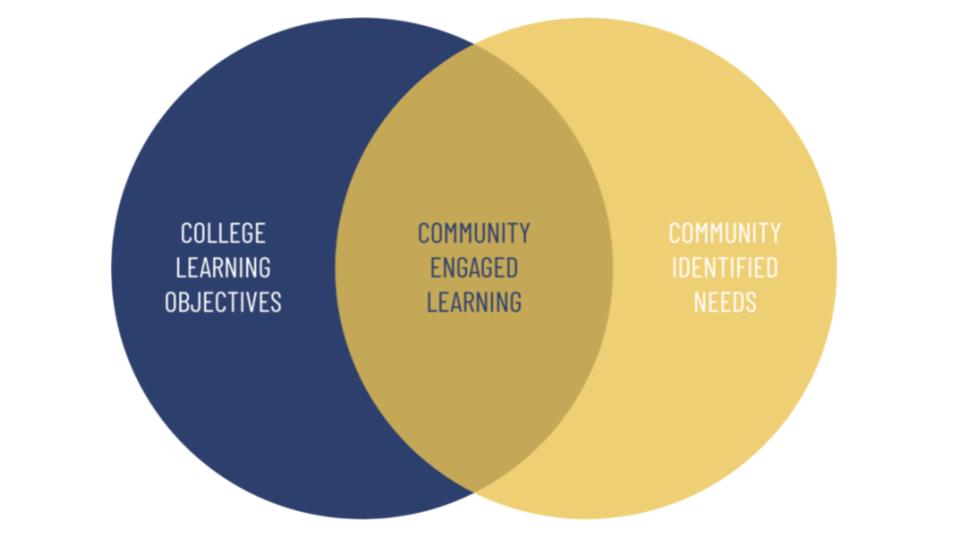Community Engaged Learning resources curated by
Dr. He Len Chung, Scholarship of Teaching and Learning Faculty Fellow
Spring 2023
Community Engaged Learning (CEL) is an educational strategy that incorporates community engagement into courses and co-curricular activities. According to the Carnegie Classification framework – guided by the Carnegie Foundation for the Advancement of Teaching and American Council on Education – community engagement describes “collaboration between institutions of higher education and their larger communities (local, regional/state, national, global) for the mutually beneficial exchange of knowledge and resources in a context of partnership and reciprocity. The purpose of community engagement is the partnership of college and university knowledge and resources with those of the public and private sectors to enrich scholarship, research, and creative activity; enhance curriculum, teaching, and learning; prepare educated, engaged citizens; strengthen democratic values and civic responsibility; address critical societal issues; and contribute to the public good.”
At The College of New Jersey (TCNJ), CEL is supported in the College’s mission and incorporated into The College Core. The College’s CEL Institute is housed in the Center for Community Engagement (CCE) and strives to enrich learning opportunities by aligning TCNJ’s educational and scholarly activities with community interests and needs.
Benefits of Community Engaged Learning
Research indicates that high-quality CEL experiences offer a range of benefits for students, faculty, and community partners. In 2023, the NCCE (North Carolina Campus Engagement) collaborative network released a Primer on the Benefits and Value of Higher Education Civic and Community Engagement, as well as a set of Topical Briefs summarizing the role of higher education in advancing CEL and community engagement, in general.
CEL opportunities at TCNJ
TCNJ’s CEL Institute is responsible for coordinating three types of CEL experiences: First-Year CEL (FYCEL); Introductory CEL (ICEL); and Advanced CEL (ACEL). FYCEL is a graduation requirement that brings the College’s values to life and introduces students to the culture of the campus and community. ICEL and ACEL – which differ in terms of the length and depth of community engagement – aims to have students develop the means to apply the knowledge they gain from academic experiences within the context of everyday community life, as well as understand how to be active and engaged citizens in a complex and diverse society.
CEL Teaching Resources
TCNJ’s CEL Institute provides information about each of the College’s CEL learning experiences (FYCEL, ICEL, ACEL), including how faculty and staff can get involved, planning materials, teaching resources, and course examples from across the College. In addition, the office can support teaching through workshops and consultation meetings. Instructors who are not teaching an ICEL or ACEL experience can also continue the FYCEL conversation with students by incorporating components of CEL in their classes with these resources: Continue the Conversation PDF 1; Continue the Conversation PDF 2.
CEL Scholarship Resources
Community engagement and community engaged scholarship (CES) can be recognized and incentivized through faculty reward mechanisms, including tenure and promotion policies and practices. Campus Compact has developed a Repository with information about: making the case and creating incentives for faculty to participate in CES; strategies to evaluate, assess, and publish CES efforts; and examples of how institutional policies have been designed to incorporate CES in tenure and promotion guidelines.
General CEL Resources
Below are additional CEL resources related to teaching and scholarship:
- Listservs and blogs
- National Service-Learning Clearinghouse Higher Education – Service Learning Listserv
- CCPH-Ethics Listserv (for ethical issues in community-based participatory research)
- Imaging America Blog


